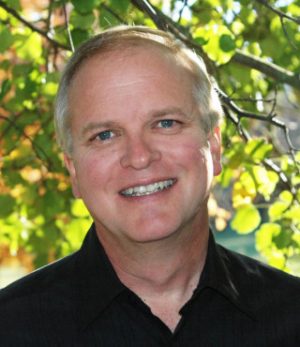 By Tim Woodroof –
By Tim Woodroof – 
“If you don’t know where you’re going, any road will take you there.”
Even the smallest journey begins with a destination. We rarely invest time and energy to travel “spontaneously,” without any thought as to purpose or goal. Rather, with a destination firmly in mind, we get out our map (or our GPS) and think about such mundane matters as route, schedule, and rest stops along the way.
Yet churches looking for new pulpit leadership often begin their journey with only the vaguest notion of where they want to end up. “We need a preacher!” churches will say, and shrug as if “preacher” is a creature that needs no parsing or definition … as if preachers come in “one size fits all” versions that suit any congregation equally well.
How do you spell “preacher”?
A brief attempt to answer a few basic questions will dispel the notion that all preachers are cut from the same cloth:
By “preacher,” do you mean:
- pastor—someone who will care for your wounded?
- priest—someone who will conduct the rituals and worship of the church?
- or prophet—someone who will lead the charge into a broken world?
(Hint: you rarely find all three in the same package. Rank order them.)
By “preacher,” do you mean someone who excels at:
- the teaching and preaching tasks of Sunday mornings?
- maturing people to become more Christ-like disciples?
- casting a large vision that excites your people for mission?
- motivating people to get involved in ministry?
- organizing, planning, and programming?
- befriending everyone and taking them for coffee?
(Hint: you won’t get all this for the price of one! If you had to pick …)
By “preacher,” do you mean someone who spends his time:
- at the office (available for member needs)?
- surrounded by commentaries and ancient texts as he prepares lessons?
- conducting Bible studies with the lost?
- doing marriage counseling?
- building bridges (and the church’s reputation) with the community?
- visiting hospitals and the shut-ins?
- helping out with the church’s day-care program (or mission efforts or homeless outreach or … fill in the blank)?
- directing various ministries of the church, supervising the staff, or blogging on the church’s website?
- leaping tall buildings and walking on water?
(Hint: no one preacher can wear all of these hats. Which tasks are most needed in your church at this time?)
By “preacher,” do you mean someone who:
- thinks exactly like you do and validates your understanding with every sermon and lesson?
- understands the gospel and Scripture better than you and challenges your thinking with every sermon and lesson?
- understands the gospel and Scripture so differently from you that he makes you mad with every sermon and lesson?
- is more concerned to explain the text than to apply it?
- is more interested in addressing topics like marriage and social issues than focusing on the gospel and Scripture?
(Hint: This is usually not a multiple-choice answer.)
By “preacher,” do you mean someone who can:
- preach an engrossing sermon?
- teach an engaging class?
- lead an effective committee meeting?
- facilitate a meaningful small group gathering?
- design and implement a successful initiative/program?
- stay quiet during elders’ meetings?
- motivate groups of people?
- motivate individuals?
(Hint: finding someone who is equally capable in the living room and the auditorium, in preaching moments and committee meetings, is a rare thing indeed. Which environment is a “must succeed” for your new preacher?)
By “preacher,” do you mean someone whose primary spiritual gift (Romans 12) is:
- Prophecy?
- Service?
- Teaching?
- Encouragement?
- Generosity?
- Leadership?
- Showing mercy?
- Sincere love?
- Hatred of evil?
(Hint: most ministers have one of these gifts. A few rare individuals have two or three. Nobody has them all. Which of these gifts is most critical to you as you think about your next preacher?)
These “basic questions” don’t even take into account your congregation’s unique character and calling, the ministries you are currently engaged in (and the skill sets/experience necessary to them), the vision you have for your church’s future (and what leadership abilities will be required to get there), and the specific opportunities God is making available to your church in your community.
Three Strikes
Churches that don’t take the time to define what they mean by “preacher” tend to err in one of three directions:
- They make the mistake of assuming that any preacher is equally suited for every situation … and imagine that anyone who can preach and chew gum at the same time has what it takes to conduct an effective ministry with their congregation. They don’t think very deeply about specific skills and abilities demanded by their particular situation. They don’t give proper weight to specific training and experiences a preacher should bring to the table. And they wonder why their new preacher (“a prince of a guy!”) can’t seem to kick the can down the road.
- They do not focus their priorities for or clarify their expectations of the new minister. They anticipate that they and the new minister will work out priorities and expectations later—once he’s got his feet on the ground. They procrastinate and equivocate until, eventually, the church becomes disappointed that their new minister fails to run fast enough to keep up with all of their requirements … and the new minister grows increasingly frustrated that, no matter how fast he runs, he can’t close the gap between performance and demands. This lack of focus is a recipe for ineffectiveness … and a virtual guarantee of ministerial burnout.
- They look for a “super-preacher”—someone who can cover whatever requirements might develop in the future. You know the profile: thirty-two years old with twenty-seven years of ministry experience … has preached for a dynamic and growing church … navigates conflict without raising a sweat … preaches in the tongue of angels … loves infants and old ladies … equally comfortable with Pharisees and tax collectors … has a sweet family but also loads of time for the church and the lost … has a prophetic edge to his teaching but wouldn’t hurt a fly … walks on water when he isn’t authoring theological tomes. Of course, every church is looking for this guy! It’s the lazy church’s way of avoiding the hard work and careful thinking that are required to define “preacher.” And, sadly, there are lots of lazy churches out there.One thing is certain: top-tiered candidates have both the savvy and the scars to recognize when churches are avoiding the hard work of defining who they are looking for.
If you are searching for new preaching leadership and are willing to think more carefully about the kind of person you need to be looking for, here are a few suggestions.
Take the six questions above and discuss them with your elders … your staff (if you have one) … a couple of small groups in the church … a few people you’ve gathered at Starbucks, drawn from nearby churches, community leaders, and neighbors.
- Can you find any common threads? Is there a consensus on anything?
- Are you overwhelmed by the varied definitions of “preacher”?
- If these people or groups were forced to choose, what kind of “preacher” would they opt for?
Where is your church in its ‘life-cycle’?
- Start-up phase (requiring entrepreneurial leadership with emphasis on vision, creativity, and risk-taking)
- Growth phase (requiring tactical leadership with emphasis on relationships, recruitment, assimilation, and motivation)
- Maturity phase (requiring system leadership with emphasis on programming, organization, and affirmation)
- Decline phase (requiring compassionate leadership with emphasis on downsizing, recognizing limitations, and rigorous focus on a few core ministries)
- Death phase (requiring caretaking leadership with emphasis on building acceptance, realistic expectations, celebration of the church’s life, and appropriate grieving for the end.
Do a survey of your congregation. (We have some survey suggestions. Contact us.) What is the church looking for and expecting? How well do they understand (how fully do they embrace) the congregation’s mission? Does internal care trump external witness? Do traditional “preacher” roles (like teaching and ministry management) win out over other equally important roles (like discipling, being a representative to the community, vision-caster, etc.)?
- Based on this survey, what kind of preacher should you be looking for? What skill sets are required? What personality?
- Do congregational preferences align with leadership priorities? Do leaders need to educate the church to accept and support a definition of “preacher” that might not match their inclinations?
Where is the ‘growth edge’ of your church? Where is the point that your church touches outsiders in a manner most likely to produce meaningful contact? Your Sunday worship assemblies? (Put a premium on preaching!) A ministry/outreach of the church? (You should look for certain skills and experiences in a new minister.) A particular demographic—like single, young, professionals … the recently divorced … retiring couples … college students? (Find a minister who knows how to connect with your target audience.)
“Right” is a Relative Term
The point of all this is to say that “preacher” means different things to different people, different churches at various stages of development, different search committees as they look for a minister with the “right” stuff. The “right” stuff depends on the particular situation, the skills and experiences that are necessary, the audiences to be reached, and the kind of ministry to be accomplished.
Churches should not simply get in the car and head out for some undefined destination called “preacher.” They must take the time to define what they mean by that term, specify who they are looking for, and identify what they expect that person to be and do. A few key questions, discussed by a few strategic groups, will help churches focus their efforts on the candidates best suited, gifted, and experienced for a particular season in the church’s life.
One thing is certain: top-tiered candidates have both the savvy and the scars to recognize when churches are avoiding the hard work of defining who they are looking for. They won’t fall for the notion that any minister can do every work. They won’t appreciate a lack of priorities and focus that sets them up for future failure. And they know themselves too well to believe they are “super-preachers”—capable of leaping lazy churches in a single bound.
If you want to attract the best candidates with the best chance of making a kingdom difference, you’d better know exactly how you spell “preacher.”




Leave a Reply